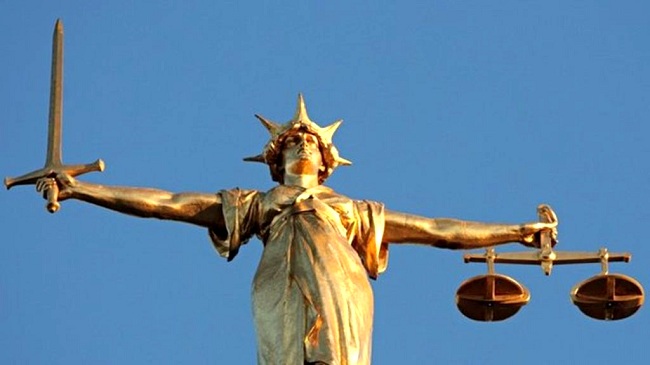Ann Power Granted Order Against Met Police & North London Senior Coroner

On 16th March 2017 the claimant Ms Power, issued proceedings pursuant to section 13 of the Coroners Act 1988 (“the 1988 Act”) seeking an order:
- i) That the inquest touching upon the death of her husband, Mr Onese Power, be quashed; and
- ii) A direction that a fresh inquest be held.
A Fiat was granted by the Attorney General’s office on 7 February 2017 authorising the claimant to make the application.
The deceased, Onese Power, was born on 2 May 1946. He was married to the claimant and they had three sons. On 6 June 1997, the deceased was disqualified from driving for six months. At approximately 10:45 on 17 August 1997 the deceased was driving a Kawasaki motorcycle along Camden Road, NW1. He was travelling at an estimated speed of 60mph along a road with a speed limit of 30mph. He was observed by PC Collier, who was driving a liveried Vauxhall Cavalier, registration number N49 OUW and PC Heatley, who was the operating officer in the car. PC Collier and Heatley made efforts to stop the deceased. The Court was informed that the trigger for their efforts was the excessive speed of the motorcycle. A pursuit ensued over a distance of approximately three miles, which lasted approximately three minutes. At a left-hand bend where Royal College Street, NW1, meets St Pancras Way and Farrier Street, the deceased’s motorcycle left the carriageway and struck a bollard in the central reservation, as a result of which the deceased sustained fatal injuries. It is the claimant’s case that the central issue is whether there was contact between the police car and the motorcycle prior to the collision with the bollard.
The inquest into the death of the deceased was held at St Pancras Coroners’ Court on 18 February 1998 before a jury who returned an open verdict. The claimant was not legally represented at the inquest.
The claimant submits that a new inquest should be ordered on three grounds:
- i) Irregularity of proceedings
The claimant did not receive disclosure of witness statements prior to the inquest despite a request for the same. Neither the claimant nor the jury were aware that PC Collier and PC Heatley had given identical statements five days following the fatal incident. A relevant witness was unable to attend due to ill health;
- ii) Insufficiency of inquiry
There were failures:
- a) to test the police vehicle at the speed at which it was travelling at the time of death in order to replicate the tyre marks found at the scene;
- b) to forensically examine the damage to the police vehicle which could have been caused by contact with the motorcycle driven by the deceased.
iii) New evidence has become available which was not known at the time of the original inquest.
Conclusion
The claimant did not have the benefit of legal representation at the inquest into the death of her husband. Her request for disclosure of statements in advance of the inquest had been refused. It was clear from her questioning of PC Lamb that the case put forward on behalf of the deceased was that he was entering the left bend from College Road but was unable to lean into the bend to safely navigate it because of the presence of the police vehicle on his nearside, at some point there was contact between the two vehicles. PC Collier and Heatley deny this version of events. The evidence of the driver of the police vehicle and his passenger was critical. The fact that the two police officers had made, in effect, identical statements was a matter upon which each could and should have been questioned so as to test the credibility and veracity of each account, in particular as to speed, distance and sequencing. One independent witness provided two statements which, on their face, could be taken as supporting the assertion of speed and contact between the two vehicles. Her statements were read, no opportunity was afforded to the unrepresented claimant to adjourn the proceedings to permit Miss McDine to attend.
In my judgment, upon these two grounds alone, there were irregularities in the proceedings, the result of which was to deprive the claimant of an informed opportunity to question each police officer as to his account of the pursuit and the collision and to elicit in oral form the evidence of Miss McDine.
The subsequent reports of Mr Cox and Dr Searle cast doubts upon the findings of PC McCarthy, PC Lamb and Mr David Turner as to the speed and direction of the police vehicle and whether there was contact between the police vehicle and the motorcycle. The opinions of Mr Cox and Dr Searle are relevant to the fundamental issue of how the fatal accident occurred. Both reports, and that of Superintendent Light, comment upon the adequacy of the original police investigation. The three reports are all relevant new evidence which was not available at the time of the original inquest. It is to the credit of the claimant, who has pursued her concerns with conspicuous tenacity, that Mr Cox’s report was finally disclosed and a meeting was held with Superintendent Light.
The reports also identify the inadequacy of the forensic testing carried out prior to the original inquest which relates to Ground Two, namely the insufficiency of inquiry. It has not been suggested that these are not valid concerns, the point that is made is that neither vehicle is available for further forensic testing. That may be, but it does not answer the point that at the original inquiry there was an insufficiency of inquiry by reason of the inadequate forensic testing.
The question to be answered is whether it is in the interests of justice for a fresh inquest to be ordered? By reason of my findings as to the irregularity in the proceedings, the insufficiency of inquiry and the emergence of relevant new evidence, the question has to be answered in the affirmative. In reaching this conclusion I take account of the considerable lapse of time which has occurred since the original inquest which brings with it the uncertainty of the availability of relevant witnesses (paragraph 34 above) and what effect the years will have upon their recollection of events. Notwithstanding these matters the cumulative effect of the significant deficiencies in the original process provide a powerful weight to set against the factors resulting from the lapse of time. The result being a balance decisively falling in favour of a new inquest.
A jury at a new inquest will be better informed to enable it to arrive at a verdict by reason of properly informed questioning of relevant witnesses, objective and independent assessment of the forensic testing and the original police investigation. It will be open to a new jury to return a narrative verdict which, it is to be hoped, would bring a measure of closure for the claimant, who for twenty years has fought tenaciously on behalf of her husband.
Accordingly, in my view, the original inquest touching upon the death of Mr Onese Power must be quashed and a fresh inquest held into his death.
Read the full judgement, http://www.bailii.org/ew/cases/EWHC/Admin/2017/3117.html





